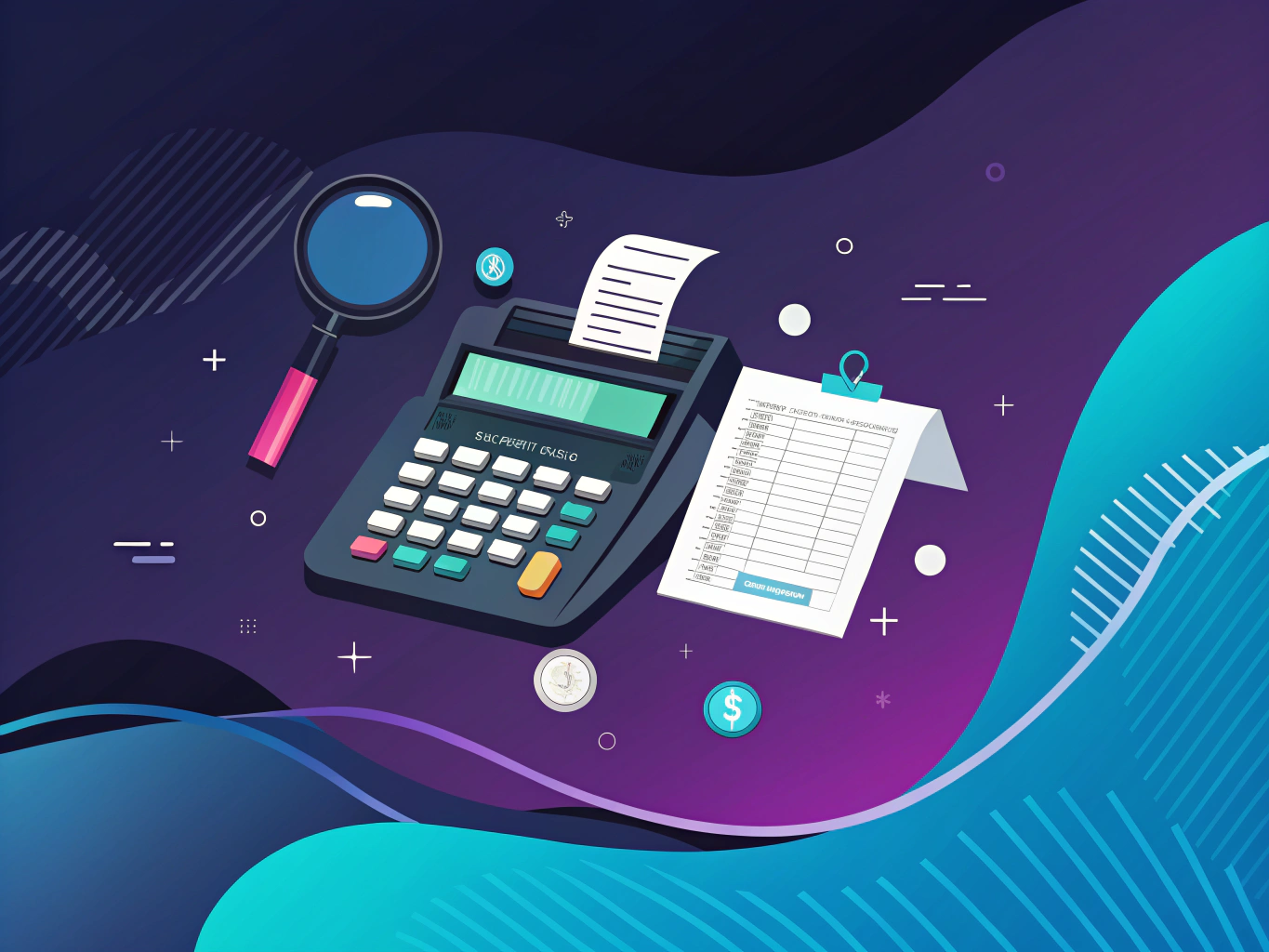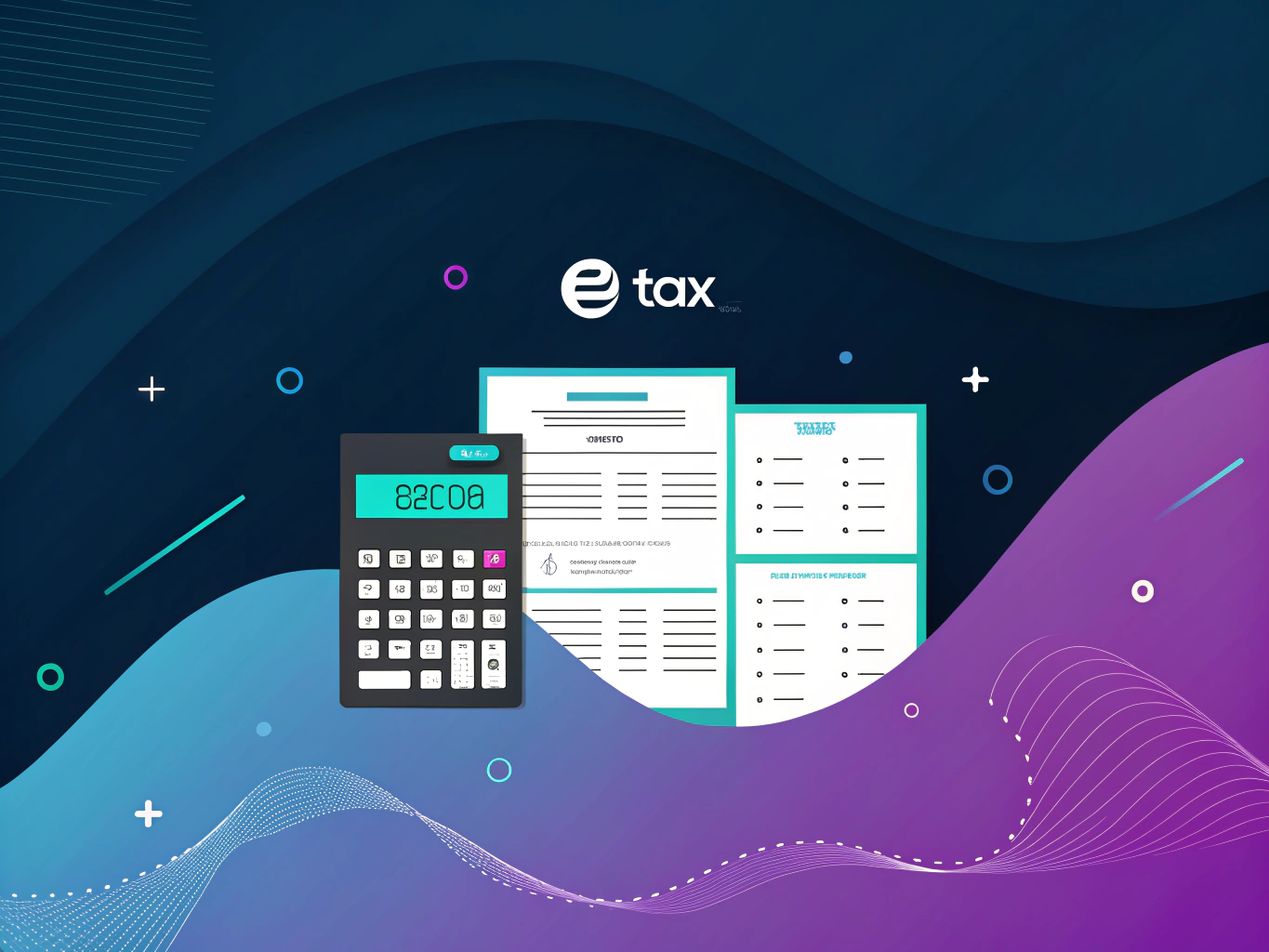Let’s face it – taxes aren’t exactly the most thrilling topic for most eBay sellers. Trust me, I get it. As someone who’s been in the ecommerce trenches, I’ve seen countless entrepreneurs get that deer-in-headlights look when tax season rolls around. But here’s the thing: understanding your eBay tax form obligations isn’t just about staying on the IRS’s good side – it’s about setting your business up for long-term success.
The landscape of online marketplace taxation is shifting faster than AI can generate product descriptions (and believe me, that’s pretty fast). With recent changes to reporting thresholds and varying state requirements, it’s more crucial than ever to get a handle on your tax obligations. Whether you’re a casual seller or running a full-fledged eBay empire, this guide will help you navigate the sometimes murky waters of ecommerce taxation.
Understanding eBay’s Form 1099-K: Key Updates and Important Details for Sellers
eBay sellers who meet specific sales thresholds may receive a Form 1099-K, which reports gross payments received for tax purposes. Recent updates, including electronic delivery, multi-account reporting, and access options, impact how sellers manage their tax documents.
Electronic Delivery of Form 1099-K
With recent changes, eBay will now automatically deliver Form 1099-K electronically, making it easier for sellers to access their tax forms online. However, those who prefer a paper copy must manually opt out of electronic delivery through their Taxes page.
- Starting October 31, 2024, eBay will switch to electronic delivery for Form 1099-K
- Sellers can download their tax form directly from their eBay account
- To receive a physical copy, sellers must opt out of electronic delivery in their Taxes settings
What Information is Included in Form 1099-K?
Form 1099-K details the gross payments received from sales on eBay. It includes transaction totals, seller information, and tax identification details. However, the form does not account for adjustments like fees, refunds, or discounts, so sellers should review their records carefully.
- Reports gross payments received before any deductions
- Includes total transaction amounts, seller’s name, address, and Tax ID
- Does not account for refunds, discounts, or seller fees
Multiple eBay Accounts and Tax Reporting
Sellers who operate multiple eBay accounts under the same Tax ID should be aware that eBay combines sales across all accounts to determine if they meet the IRS reporting threshold. If total transactions exceed the limit, a separate Form 1099-K will be issued for each account, even if an individual account does not meet the threshold.
- Sales from multiple eBay accounts linked to the same Tax ID are combined for reporting
- If total sales exceed the IRS threshold, eBay issues a separate Form 1099-K for each account
- Individual accounts may receive a 1099-K even if they do not meet the threshold on their own
How to Access and Manage Your Form 1099-K
eBay provides electronic access to Form 1099-K through Seller Hub and My eBay. Sellers who prefer a paper copy must disable electronic delivery in their Taxes settings. It’s essential to review the form for accuracy and report any discrepancies to eBay support before March 30 to ensure corrections are made before tax filing deadlines.
- Contact eBay support before March 30 for corrections
- Sellers can retrieve Form 1099-K through Seller Hub or My eBay
- To receive a paper form, electronic delivery must be disabled in Taxes settings
- Reviewing tax details early helps avoid discrepancies
Current Reporting Thresholds: What Triggers a 1099-K

Here’s where things get interesting (yes, tax thresholds can actually be interesting). For 2023, you’ll receive an eBay tax form if you hit two magic numbers: $20,000 in gross sales AND 200 transactions. It’s like a weird game of financial bingo, except the prize is more paperwork.
The Changing Landscape of Tax Reporting
Hold onto your spreadsheets, because 2024 is bringing changes. The threshold drops to $5,000 – no transaction minimum required. And in 2025? It plummets to $600. That’s lower than some people spend on their morning coffee runs in a year. This isn’t just about backup withholding or meeting basic requirements – it’s about adapting to a new reality in ecommerce taxation.
State-Specific Considerations
Just when you thought you had it figured out, state requirements enter the chat. Some states have their own thresholds that are lower than federal requirements. For instance, Massachusetts and Vermont have been playing by their own rules with lower reporting thresholds for years. It’s like each state is running its own mini tax universe.
Who Gets a 1099-K: Are You on the List?
This isn’t like getting picked for the dodgeball team in gym class – there are specific criteria that determine whether you’ll receive a 1099-K. Let’s break down who needs to keep an eye on their mailbox (or digital inbox) come tax season.
Business vs. Personal Selling: The Great Divide
Here’s a question I get all the time: “Does selling my old Star Wars collection count as a business?” The answer isn’t always straightforward. The IRS looks at factors like profit motive, regularity of sales, and whether you’re running your eBay activities like a business. If you’re consistently sourcing products to resell, that’s probably a business. If you’re clearing out your closet once a year? That’s likely personal selling.
International Seller Requirements
For my international friends out there – yes, you’re part of this too. If you’re selling to U.S. customers through eBay, you might need to deal with tax forms and backup withholding requirements. It’s like playing in an away game – you need to know the local rules.
Essential Record Keeping: Your Business’s Memory Bank

I can’t stress this enough – good record keeping is like having a time machine for your business. When tax season rolls around or if the IRS comes knocking, you’ll thank yourself for maintaining detailed records. Think of it as writing the autobiography of your business, one transaction at a time.
Digital vs. Physical Records
In this age of cloud storage and digital everything, you might wonder if paper records still matter. While digital records are fantastic (and I’m obviously a fan of technology), having a hybrid system isn’t a bad idea. Your eBay business needs both a digital footprint and a paper trail – think of it as wearing both a belt and suspenders.
What Records to Keep and For How Long
The general rule is to keep records for at least three years from the date you file your return or two years from the date you pay the tax, whichever is later. But here’s a pro tip: in some cases, keeping records longer can actually save you money down the line, especially if you’re dealing with long-term assets or complex business situations.
Remember, this isn’t just about satisfying the IRS – good record keeping gives you insights into your business’s performance and helps you make better decisions. It’s like having a dashboard for your eBay business, showing you exactly where you’ve been and helping you plot where you’re going.
Understanding Form 1099-K Basics
Let’s cut through the confusion around eBay tax forms, shall we? Because if there’s one thing that makes sellers more nervous than a glitchy listing page, it’s taxes. Trust me, I’ve been there – staring at a 1099-K like it’s written in ancient hieroglyphics.
The Form 1099-K isn’t actually as mysterious as it seems. Think of it as your digital receipt tracker – it’s basically the IRS’s way of keeping tabs on what’s happening in the world of online sales. eBay, acting as your payment processor, is required to report your earnings through this form when you hit certain thresholds.
Current Reporting Thresholds
Here’s where things get interesting – and by interesting, I mean potentially confusing. For 2023, you’ll only get an eBay tax form if you’ve hit both $20,000 in sales AND made 200+ transactions. It’s like a weird game of financial bingo where you need both numbers to win (or in this case, get a form).
But hold onto your shipping labels, because 2024 is bringing changes. The threshold drops to $5,000 – no transaction minimum required. And in 2025? It plummets to $600. It’s like watching a clearance sale, except instead of prices, it’s reporting thresholds dropping.
Who Receives a 1099-K Form
You might be wondering if you’ll get an eBay tax form. The answer isn’t always straightforward – kind of like trying to determine if that vintage item you’re selling is actually vintage or just old. But here’s the deal: if you’re running a business on eBay, you’re more likely to need to pay attention to these forms than someone occasionally selling their old Star Wars collectibles.
Managing Your eBay Tax Obligations

Let’s talk about record-keeping – and no, screenshots of your sales dashboard don’t count as a complete system. Think of your eBay business like a spaceship – you need a proper flight log to know where you’ve been and where you’re going.
Record Keeping Requirements
Your record-keeping system should be more organized than your sock drawer (though maybe that’s not saying much). You need to track every sale, every fee, every shipping cost – basically, everything that moves money in or out of your business. Digital or physical? That’s your call, but in 2024, going digital is like choosing a smartphone over a carrier pigeon.
Calculating Taxable Income
Here’s where many sellers get tripped up – calculating actual taxable income isn’t just about what shows up on your eBay tax form. It’s about understanding the difference between gross sales (what you see on paper) and net profit (what you actually get to keep). Those platform fees? Deductible. Shipping costs? Yep, those too. Home office where you spend hours photographing items? That could be a deduction as well.
Business vs. Hobby Classification
The IRS loves putting things in boxes (metaphorically speaking), and they’ll want to know if your eBay selling is a business or a hobby. It’s not just about how much you make – it’s about your intent and approach. Are you trying to make a profit? Do you maintain professional records? Have you adapted your strategies to increase profitability? These are the kinds of questions that determine your classification.
Handling Common Tax Form Issues
Sometimes your eBay tax form numbers might look about as accurate as a weather forecast. Don’t panic – there are ways to handle discrepancies.
Resolving Form Discrepancies
If your numbers don’t match up with reality (and let’s be honest, sometimes they don’t), you’ve got options. First step? Double-check your own records – they should be more detailed than a Marvel movie timeline. If something’s genuinely wrong, eBay’s support team should be your next stop.
The key is documentation – keep everything. And I mean everything. Think of it like preparing for a zombie apocalypse, except instead of stockpiling canned goods, you’re hoarding receipts and transaction records.
Missing or Incorrect Forms
No form when you expected one? Or got one with numbers that look like they came from an alternate universe? Here’s what you need to know: you’re still responsible for reporting your income accurately, form or no form. The IRS doesn’t accept “but eBay didn’t send me a form” as an excuse – trust me, I’ve asked.
Tax Planning Strategies for eBay Sellers

Smart tax planning is like having a good listing strategy – it can make or break your success. Let’s break down some key approaches that won’t put you to sleep faster than reading IRS publications.
Quarterly Tax Considerations
If you’re making serious money on eBay, you might need to make quarterly estimated tax payments. Think of it like splitting your annual tax bill into four payments instead of one massive hit – kind of like how you’d rather ship multiple small packages than one giant, unwieldy box.
The trick is calculating these payments correctly. Too little, and you might face penalties. Too much, and you’re giving the government an interest-free loan. Neither is ideal, but there are tools and strategies to help you get it right.
Business Structure Options
Your business structure isn’t just about looking professional – it can significantly impact your tax situation. Sole proprietorship? LLC? Corporation? Each has its pros and cons, kind of like choosing between different shipping carriers. The right choice depends on your specific situation, goals, and how much paperwork you’re willing to handle.
Remember, these decisions aren’t set in stone. As your business grows, your structure can evolve. It’s like upgrading your eBay store subscription – you adapt as your needs change.
State and Local Tax Compliance
Just when you thought you had federal taxes figured out, state and local taxes enter the chat. And let me tell you, they can be more complex than trying to explain why someone would pay $500 for a Beanie Baby.
Multi-State Selling Requirements
Selling across state lines? Welcome to the wonderful world of nexus – a fancy term for having enough presence in a state that they want a piece of your tax pie. Each state has different rules, different thresholds, and different requirements. It’s like playing a nationwide game of tax compliance whack-a-mole.
Sales Tax Collection
Thankfully, eBay handles most sales tax collection these days through marketplace facilitator laws. But that doesn’t mean you can completely ignore sales tax. You still need to understand what’s being collected, when, and how it affects your business. It’s like having a really efficient assistant – great to have, but you still need to know what they’re doing.
The landscape of eBay taxes is constantly evolving, much like the platform itself. Staying informed and organized isn’t just good practice – it’s essential for survival in the digital marketplace. And remember, when in doubt, consult with a tax professional. They’re like the tech support of the tax world, except instead of turning it off and on again, they actually know how to fix things.
Advanced Tax Considerations for eBay Sellers

Let’s dive into the more complex aspects of eBay tax forms and reporting requirements. Think of your eBay business like a spacecraft – sure, you can operate it with basic controls, but understanding its advanced systems makes the journey much smoother (and keeps you from accidentally entering a tax black hole).
International Sales and Cross-Border Transactions
If you’re selling internationally on eBay, you’re essentially running a mini-global enterprise. This comes with its own set of tax implications that would make even a Vulcan’s head spin. You’ll need to consider VAT for European sales, GST for Australian customers, and various other country-specific requirements.
Here’s where things get interesting – and by interesting, I mean potentially complicated:
- Currency conversion documentation (keep track of exchange rates at time of sale)
- Foreign income reporting on Schedule B
- Country-specific tax treaties that might affect your obligations
- International shipping documentation for tax purposes
Managing Your eBay Tax Form Requirements
Remember when I mentioned treating AI like an intern? Well, think of tax software as your AI assistant – helpful but needs supervision. While tools like TurboTax and QuickBooks can handle basic eBay tax form processing, they’re not infallible. You’ll want to maintain your own records and double-check everything.
Backup Withholding and Special Circumstances
If you’re subject to backup withholding, eBay will withhold 24% of your gross payments. This typically happens if you’ve provided incorrect information or if the IRS has notified eBay to begin backup withholding. It’s like having a very strict accountant who takes their cut before you see a dime.
Full Service Marketplace Implications
With eBay’s transition to a full service marketplace, they’re handling more of the payment processing – which means more detailed reporting. Your 1099-K will reflect all transactions processed through their system, making it crucial to maintain accurate records for reconciliation.
Strategic Tax Planning for eBay Businesses
Let’s get tactical about this. Your eBay business isn’t just about buying low and selling high – it’s about understanding how every transaction affects your tax position. Think of it as playing chess with the IRS (except the IRS always moves first, and you need to plan accordingly).
Quarterly Planning and Compliance
For serious eBay sellers, quarterly tax planning isn’t optional – it’s essential. Consider this your regular spacecraft maintenance schedule:
- Monthly profit and loss reviews
- Quarterly estimated tax payments
- Regular reconciliation of eBay sales reports with your records
- Periodic review of tax law changes affecting ecommerce
Future-Proofing Your eBay Tax Strategy
The ecommerce tax landscape is evolving faster than smartphone technology. With the upcoming changes to 1099-K reporting thresholds (dropping to $5,000 in 2024 and potentially $600 in 2025), you’ll need to adapt your strategy accordingly.
Risk Management and Audit Preparation
Think of audit preparation like installing a security system – you hope you’ll never need it, but you’ll be grateful it’s there if you do. Keep detailed records of:
- All eBay sales transactions
- Cost of goods sold (COGS)
- Business expenses and deductions
- Communications with eBay regarding tax matters
Practical Tips for eBay Tax Compliance
Here’s where the rubber meets the road (or where the digital bits meet the blockchain, if you prefer). These practical tips will help keep your eBay tax situation running smoothly:
- Set up a separate business bank account if you haven’t already
- Use accounting software that integrates with eBay
- Keep digital copies of all receipts (trust me, paper receipts fade faster than your first iPhone’s battery)
- Consider hiring a tax professional who understands ecommerce
Conclusion: Mastering Your eBay Tax Obligations
Managing your eBay tax forms and obligations doesn’t have to feel like trying to understand quantum physics. Yes, there are complexities, but with the right systems and understanding in place, it’s manageable. Think of it as leveling up your business game – each tax season makes you more proficient at handling these requirements.
Remember, the goal isn’t just compliance – it’s building a sustainable, profitable business that can withstand scrutiny and scale effectively. Keep detailed records, stay informed about changes in tax laws, and don’t hesitate to seek professional help when needed.
The future of ecommerce taxation is likely to become more automated and integrated, but until we reach that sci-fi future where AIs handle all our tax needs (and hopefully don’t decide to audit us for fun), it’s up to us to stay on top of our tax game.
Final Thoughts on eBay Tax Forms
Whether you’re just starting your eBay selling journey or you’re a seasoned power seller, understanding and managing your tax obligations is crucial. The landscape will continue to evolve, but the fundamentals remain: accurate record-keeping, timely reporting, and strategic planning are your best tools for success.
And remember – while tax season might feel like navigating an asteroid field, with the right preparation and understanding, you can pilot your eBay business through it successfully. Keep learning, stay organized, and don’t forget to celebrate your wins along the way. Check out more about tax information reporting for eBay sellers.
👉👉 Create Photos, Videos & Optimized Content in minutes 👈👈
Related Articles:
- Sites Like Temu: 7 Best Budget Shopping Alternatives
- Crafting the Perfect Product Gallery on Amazon with Background Removal
- ProductScope AI vs. Photoshop for Ecommerce: Which Is Better
Frequently Asked Questions
How to get ebay tax form?
To obtain a tax form from eBay, you can access your eBay account and navigate to the seller dashboard or the payments section, where tax documents like Form 1099-K are typically available for download. Ensure your account information is up-to-date to receive notifications when your tax form is ready.
Will ebay send me a tax form?
Yes, eBay will send you a tax form if your sales meet certain thresholds. If you exceed $600 in gross sales during the calendar year, eBay will issue a Form 1099-K to report your earnings to the IRS and provide you with a copy.
When does ebay send tax form?
eBay typically sends out tax forms, such as the Form 1099-K, by January 31st of each year. This timeline ensures that you have ample time to prepare your tax filings before the April 15th tax deadline.
Where to get ebay tax form?
You can get your eBay tax form by logging into your eBay account and visiting the seller dashboard or payments section. Tax forms are usually available for download, and eBay will also send a copy to your registered email address.
How to get tax form from ebay?
To get your tax form from eBay, check your registered email for any notifications from eBay regarding tax documents. Additionally, you can log into your account and go to the payments or documents section to directly download the Form 1099-K if it has been issued.
About the Author
Vijay Jacob is the founder and chief contributing writer for ProductScope AI focused on storytelling in AI and tech. You can follow him on X and LinkedIn, and ProductScope AI on X and on LinkedIn.
We’re also building a powerful AI Studio for Brands & Creators to sell smarter and faster with AI. With PS Studio you can generate AI Images, AI Videos, Chat and Automate repeat writing with AI Agents that can produce content in your voice and tone all in one place. If you sell on Amazon you can even optimize your Amazon Product Listings or get unique customer insights with PS Optimize.
🎁 Limited time Bonus: I put together an exclusive welcome gift called the “Formula,” which includes all of my free checklists (from SEO to Image Design to content creation at scale), including the top AI agents, and ways to scale your brand & content strategy today. Sign up free to get 200 PS Studio credits on us, and as a bonus, you will receive the “formula” via email as a thank you for your time.

